detail profile fernand gravey
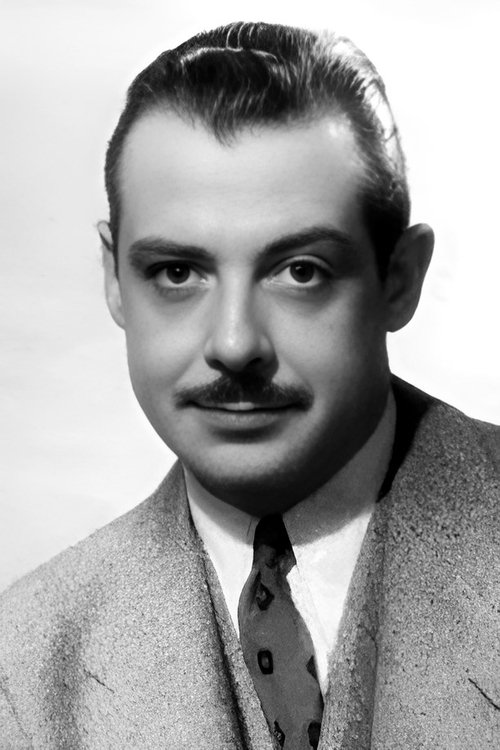
Fernand Gravey
Fernand Mertens
atau dikenal sebagai
Riwayat Hidup
Fernand Gravey (25 December 1905 in Ixelles (Belgium) – 2 November 1970 in Paris, France), also known as Fernand Gravet in the United States, was the son of actors Georges Mertens and Fernande Depernay, who appeared in silent films produced by pioneer Belge Cinéma Film (a subsidiary of Pathé).
Gravey started performing at age five under his father's direction.
Before World War I, he received an education in Britain and could speak both French and English fluently, something which became useful in his movie roles.
During the war, Gravey served in the British Merchant Marine Corp.
In 1936, he married the French actress Jane Renouardt, who was 15 years his senior.
They remained together until his death on 2 November 1970 of a heart-attack.
Jane died on 3 February 1972.
They had no children.
Gravey performed in four films in 1913 and 1914 (as Fernand Mertens), but his first film of importance was L'Amour Chante, released in 1930.
In 1933, he made Bitter Sweet, his first English language movie, which became more famous in its 1940 incarnation with Jeanette MacDonald and Nelson Eddy.
In 1937, after several more French and British movies, Gravey went to Hollywood, where the spelling of his last name was altered to Gravet, and he became the focus of a rather extensive Hollywood publicity campaign (instructing moviegoers to pronounce his name properly: "Rhymes with Gravy").
Unfortunately for Gravey, he was offered only standard parts, the type of Gallic-lover roles that Louis Jourdan played in the 1950s and 1960s.
The first two films he made in Hollywood were for Warner Brothers: The King and the Chorus Girl (1937), with Joan Blondell and Jane Wyman, and Fools for Scandal (1938), with Carole Lombard and Ralph Bellamy.
Gravey then signed with Metro-Goldwyn-Mayer and was cast as Johann Strauss in the expensive biopic The Great Waltz, with Luise Rainer and Miliza Korjus.
MGM next planned to star Gravey in a film version of Rafael Sabatini's adventure novel Scaramouche, but instead he returned to France just before the Nazi occupation began.
Although he had agreed to appear in German-approved French films, Gravey was an underminer of the invaders as a member of the French Secret Army and the Foreign Legion.
At the end of the war, Gravey was considered a war hero, and continued to be featured in French productions such as La Ronde (with Danielle Darrieux), and Royal Affairs in Versailles (1954).
Among his last English language performances were How to Steal a Million (1966), Guns for San Sebastian (1968) and The Madwoman of Chaillot (1969), in which he played the police inspector.
Source: Article "Fernand Gravey" from Wikipedia in English, licensed under CC-BY-SA 3.
0.
Info Pribadi
Peran Yang Di Mainkan Fernand Gravey
 Gene Kelly and Fred Astaire present...
Gene Kelly and Fred Astaire present...That's Entertainment, Part II 1976
Gene Kelly and Fred Astaire present more golden moments from the MGM film library, this time including comedy and drama as well as classic musical numbers.
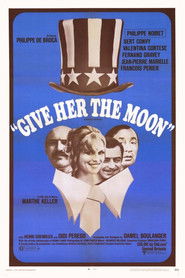 Marie a young provincial girl is...
Marie a young provincial girl is...Give Her the Moon 1970
Marie, a young provincial girl, is seduced by an American billionaire. She agrees to stay with him if he moves her village to New York.
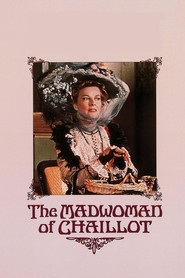 An eccentric Parisian womans optimistic perception...
An eccentric Parisian womans optimistic perception...The Madwoman of Chaillot 1969
An eccentric Parisian woman's optimistic perception of life begins to sound more rational than the traditional beliefs of others. The story is set in a 20th-century society endangered by power and greed and imagines the rebellion of the "little people" against corrupt and soulless authority.
 Leon Alastray is an outlaw who...
Leon Alastray is an outlaw who...Guns for San Sebastian 1968
Leon Alastray is an outlaw who has been given sanctuary by Father John, whom he then escorts to the village of San Sebastian. The village is deserted, with its cowardly residents hiding in the hills from Indians, who regularly attack the village and steal all their supplies. When Father John is murdered, the villagers mistakenly think the outlaw is the priest. Alastray at first tells them he is not a priest, but they don't believe it, and an apparent miracle seems to prove they are correct. Eventually, he assists them in regaining their confidence and defending themselves.
 A woman must steal a statue...
A woman must steal a statue...How to Steal a Million 1966
A woman must steal a statue from a Paris museum to help conceal her father's art forgeries.
 Isabel is a beautiful aspiring singer...
Isabel is a beautiful aspiring singer...The Woman from Beirut 1965
Isabel is a beautiful aspiring singer with great aspirations but persistent bad luck convicted of a crime she did not commit. Serving time in prison she is released under parole and lands a singing gig at a dive in Barcelona where she meets Sandro "The Greek" and his partner lover Gloria. The couple is posing as entertainment promoters but they are really running a prostitution ring based in Beirut. They offer Isabel a two-year contract to perform in "night clubs" in the Near and Mideast even after they learn that she cannot travel abroad due to her legal status. Upon arrival in Beirut, Isabel and the other girls are sped away to a luxurious villa where they discover the real intentions of the pseudo-promoters. They are expected to sing and dance but also to engage in sexual activities with the rich clients that patronize the place. Isabel pretends to go along with the situation but she has a plan to get away
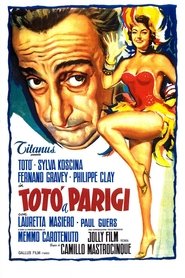 Ducloss son a worldly gangster is...
Ducloss son a worldly gangster is...Toto in Paris 1958
Duclos's son, a worldly gangster, is compromised in a case of which he is innocent. The proof of this innocence is in the hands of a "competitor", the Marquis de Chemantel de Beauvoiron, a misguided aristocrat. He asked for $ 10 million to cede the document. Duclos will then imagine Chemantel contracting $ 10 million in life insurance for his son. As he discovered in Rome a tramp, a look-alike of the marquis, he will bring this man to Paris and arrange for him to die accidentally.
 During the First World War the...
During the First World War the...Mitsou 1956
During the First World War, the Empyrée Montmartre, a Paris music-hall, is dedicated to patriotic revues whose star is the charming Mitsou. The young artist is not without talent but she is mainly well-connected. She is indeed the cherished mistress of Pierre Duroy-Lelong, a rich industrialist. One night, thanks to Petite-Chose, an ebullient singer-dancer and her co-star, she gets to know a handsome army, Lieutenant Bleu. Mitsou falls madly in love with him and Lieutenant Bleu is physically attracted to her. The trouble is that Bleu comes from a distinguished family and cannot put up with her lack of culture and artistic bad taste...
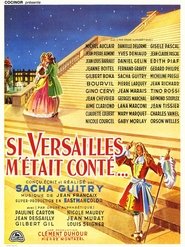 Witty narration follows the history of...
Witty narration follows the history of...Royal Affairs in Versailles 1954
Witty narration follows the history of Versailles Palace; founded by Louis XIII, enlarged by autocratic Louis XIV, whose personal affairs and amours, and those of his two successors, are followed in more detail to the start of the Revolution, after which the story is brought rapidly up to date. A huge cast plays mainly historical persons who appear briefly.
 An allknowing interlocutor guides us through...
An allknowing interlocutor guides us through...La Ronde 1950
An all-knowing interlocutor guides us through a series of affairs in Vienna, 1900. A soldier meets an eager young lady of the evening. Later he has an affair with a young lady, who becomes a maid and does similarly with the young man of the house. The young man seduces a married woman. On and on, spinning on the gay carousel of life.
 Domino has only a wooden statuette...
Domino has only a wooden statuette...Domino 1943
Domino has only a wooden statuette, a typical piece of African art, to show for his trip. Arriving in Paris, Domino phones the famous Heller galleries to try to sell his statuette. He gets Heller’s wife, who uses him to deflect the suspicions of her jealous husband: she had an affair before their marriage. Domino gets carried away and persuades the young woman to go away with him.
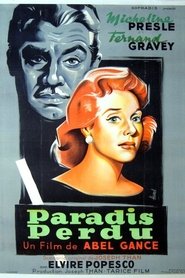 In preWorld Ward I in Paris...
In preWorld Ward I in Paris...Four Flights to Love 1939
In pre-World Ward I in Paris, a budding artist, Pierre LeBlanc, falls in love and marries Janine, a dressmaker's assistant. Pierre has a flair for designing clothes, and he and his bride live in a blissful paradise, until the war breaks out and he becomes a soldier. Janine dies in childbirth and, no longer desiring to live, Pierre volunteers for a dangerous patrol behind German lines. While recuperating in the hospital from a wound he received on the mission, Pierre spends his time drawing sketches of dresses. He becomes rich and famous after the war. Years later, after devoting himself to his daughter, Pierre seeks a marriage with a girl no older than his daughter. A conflict develops and to ensure his daughter's happiness, Pierre sacrifices his own plans.
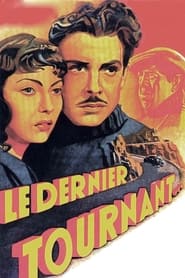 Frank a hobo ends up in...
Frank a hobo ends up in...The Last Turning 1939
Frank, a hobo, ends up in a garage-truck stop in the middle of nowhere. Nick Marino, its older, kind and naive owner, is married to Cora, a sexy and mercenary woman half his age. Frank, although not a fan of hard work, accepts Nick's offer to work for him. Of course, it is not for Nick's sake that the young man becomes his attendant, but for the love of Cora under whose spell he has fallen at once. It does not take long before Cora, who despises her husband, asks her lover to help her get rid of him. Frank is reluctant at first but ...
 Flubs and bloopers that occurred on...
Flubs and bloopers that occurred on...Breakdowns of 1938 1938
Flubs and bloopers that occurred on the set of some of the major Warner Bros. pictures of 1938.
 Composer Johann Strauss risks his marriage...
Composer Johann Strauss risks his marriage...The Great Waltz 1938
Composer Johann Strauss risks his marriage over his infatuation with a beautiful singer.
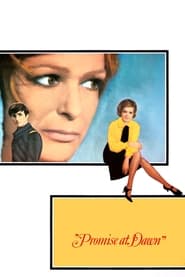 A single mother raises her son...
A single mother raises her son...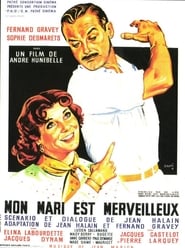 A young journalist Sylvia has to...
A young journalist Sylvia has to...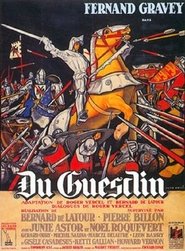 A chronicle of the life of...
A chronicle of the life of...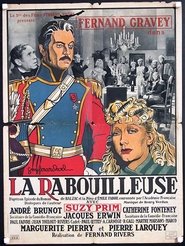 1824 in Issoudun A bourgeois Rouget lives...
1824 in Issoudun A bourgeois Rouget lives...